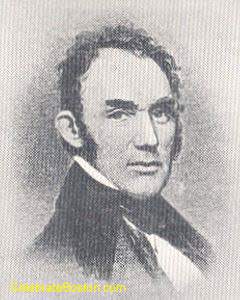 |
Mayor Charles Wells
Served 1832-1833
"Born in Boston, December 30, 1786; died June 3, 1866; served as Mayor during 1832-1833.
In 1831, two elections were held for the purpose of selecting a mayor. In the first election, the contest lay between Charles Wells, William Sullivan and Theodore Lyman, Jr.; in the second, it narrowed to one between Wells and Lyman. Charles Wells won and served two terms.
He had been a member of the Common Council and of the Board of Aldermen, but he did not come from the same social stratum that had contributed the previous mayors, his occupation being that of a master builder. His election has been described as a protest by the middle class against 'excessive' expenditures inaugurated by Quincy and maintained by Otis.
Mayor Wells' administration was, on the whole, featureless, except that expenditures continued to rise and with them the city debt not withstanding higher tax rates.
The early thirties were years of prosperity, and it was natural that expenditures should be indulged in proportionately. Under Mayor Wells, a new court house was built, some of the principal streets extended, and the quarantine regulations were more strictly enforced owing to the prevalence of cholera in certain British provinces."
